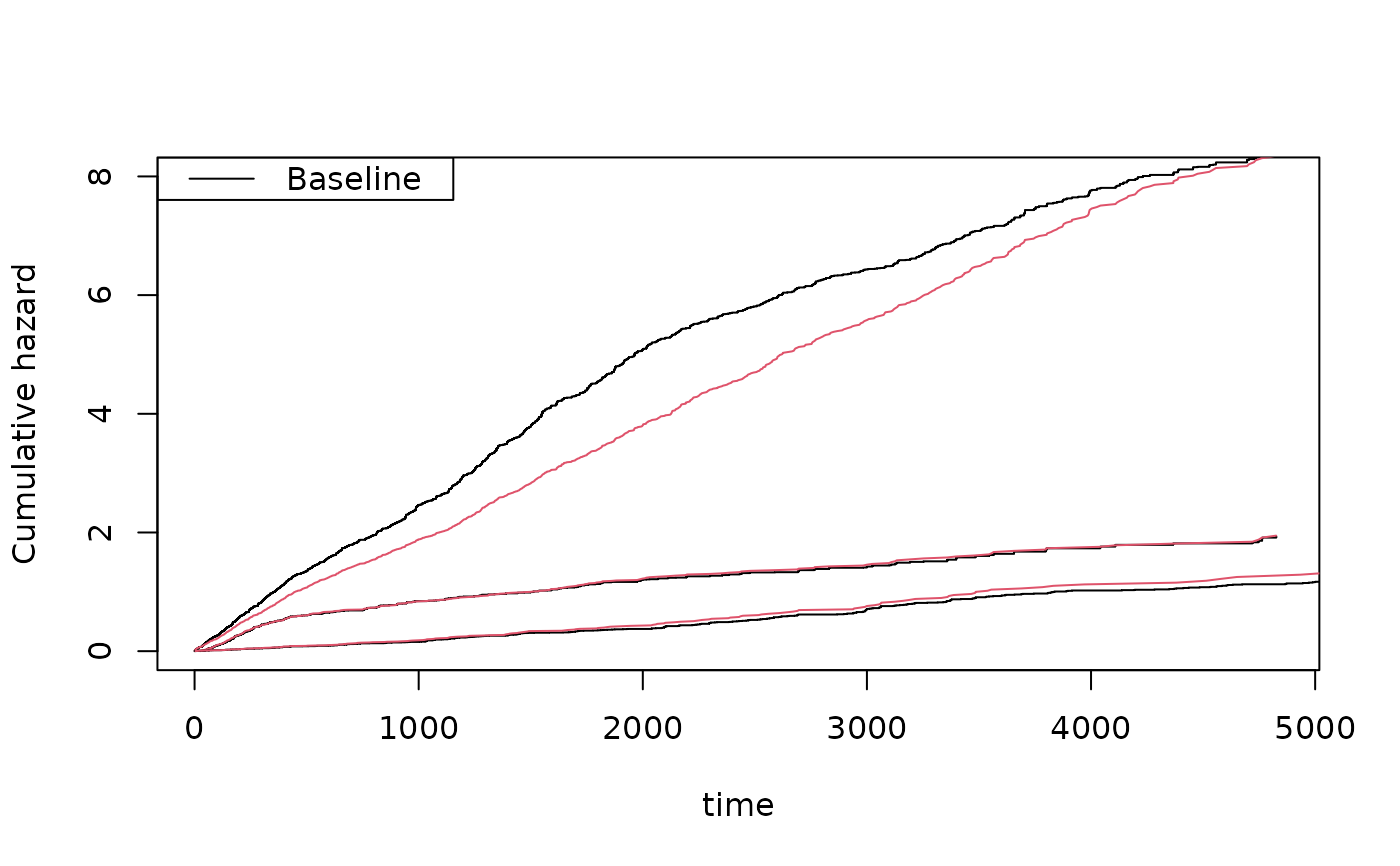
Simulation of recurrent events data based on cumulative hazards: Two-stage model
Source:R/recurrent.marginal.R
simRecurrentTS.RdSimulation of recurrent events data based on cumulative hazards
Usage
simRecurrentTS(
n,
cumhaz,
cumhaz2,
death.cumhaz = NULL,
nu = rep(1, 3),
share1 = 0.3,
vargamD = 2,
vargam12 = 0.5,
gap.time = FALSE,
max.recurrent = 100,
cens = NULL,
...
)Arguments
- n
number of id's
- cumhaz
cumulative hazard of recurrent events
- cumhaz2
cumulative hazard of recurrent events of type 2
- death.cumhaz
cumulative hazard of death
- nu
powers of random effects where nu > -1/shape
how random effect for death splits into two parts
- vargamD
variance of random effect for death
- vargam12
shared random effect for N1 and N2
- gap.time
if true simulates gap-times with specified cumulative hazard
- max.recurrent
limits number recurrent events to 100
- cens
rate of censoring exponential distribution
- ...
Additional arguments to lower level funtions
Details
Model is constructed such that marginals are on specified form by linear approximations of cumulative hazards that are on a specific form to make them equivalent to marginals after integrating out over survivors. Therefore E(dN_1 | D>t) = cumhaz, E(dN_2 | D>t) = cumhaz2, and hazard of death is death.cumhazard
Must give hazard of death and two recurrent events. Hazard of death is death.cumhazard two event types and their dependence can be specified but the two recurrent events need to share random effect.
Random effect for death Z.death=(Zd1+Zd2), Z1=(Zd1^nu1) Z12, Z2=(Zd2^nu2) Z12^nu3 $$Z.death=Zd1+Zd2$$ gamma distributions $$Zdj$$ gamma distribution with mean parameters (sharej), vargamD, share2=1-share1 $$Z12$$ gamma distribution with mean 1 and variance vargam12
Examples
########################################
## getting some rates to mimick
########################################
data(CPH_HPN_CRBSI)
dr <- CPH_HPN_CRBSI$terminal
base1 <- CPH_HPN_CRBSI$crbsi
base4 <- CPH_HPN_CRBSI$mechanical
rr <- simRecurrentTS(1000,base1,base4,death.cumhaz=dr)
dtable(rr,~death+status)
#>
#> status 0 1 2
#> death
#> 0 138 2394 384
#> 1 861 0 0
showfitsim(causes=2,rr,dr,base1,base4)

